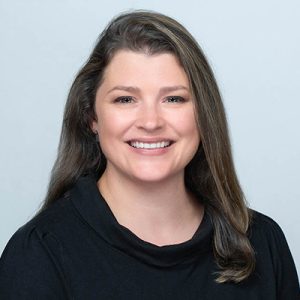
Adopting AI – South Carolina Lawyer
ADOPTING AI: IT’S NOT IF – IT’S HOW
In an article for South Carolina Lawyer, Kim, Lahey & Killough firm founder Doug Kim discusses the risks and rewards of the responsible use of AI for attorneys and law firms. While most in the legal profession bring a cautious approach to the use of AI, this article expounds on the positive benefits of the use of the transformative technology for both attorneys and their clients.
Will AI replace lawyers? No. AI will not replace lawyers but instead will serve as a powerful tool to enhance their capabilities, much like how a high-quality instrument amplifies a professional musician’s training and expertise. AI cannot replace the essential human elements of legal practice. Complex legal matters require nuanced judgment, ethical reasoning, and the personal connection that only human lawyers can provide. AI lacks the ability to make decisions based on empathy, interpret circumstances subjectively, or understand the professional responsibilities that guide legal practice. These human elements remain irreplaceable and essential to effective legal representation.
What AI can do is make lawyers more effective and efficient.
When properly implemented by skilled professionals, AI can automate routine tasks such as legal research, document review, and initial drafting, allowing attorneys to focus on complex strategic work that requires human judgment, ethical reasoning, and personal client relationships.
However, skilled implementation is key as recent court cases involving fabricated AI-generated citations underscore the critical importance of proper training, verification and human oversight.
For clients, responsible AI adoption translates to more efficient service delivery, reduced costs, and higher quality representation, as smaller firms can compete more effectively with larger ones by leveraging technology.
The legal profession is moving toward a future where firms that embrace AI responsibly will provide superior service at competitive rates, while those that resist this evolution risk falling behind.
Ultimately, AI represents not a threat to the legal profession but an opportunity to deliver better outcomes more efficiently, provided it’s implemented with the skill, oversight, and ethical standards that effective legal practice demands.
Read the entire article below, or online here on pages 32-35 and 45 of South Carolina Lawyer.
ADOPTING AI: IT’S NOT IF – IT’S HOW
by Doug Kim for South Carolina Lawyer Magazine, a publication of the South Carolina Bar.
 Last year, Thomson Reuters released a report[1] stating that 82% of lawyers surveyed said AI can be applied to legal work, but only 51% said that it should. That leads to two questions. What can technically do and what are its risks and rewards? Second, how should lawyers use AI? Part 1 of this article addresses the first question. Part 2, which will appear in an upcoming issue of South Carolina Lawyer, provides my views on the latter question.
Last year, Thomson Reuters released a report[1] stating that 82% of lawyers surveyed said AI can be applied to legal work, but only 51% said that it should. That leads to two questions. What can technically do and what are its risks and rewards? Second, how should lawyers use AI? Part 1 of this article addresses the first question. Part 2, which will appear in an upcoming issue of South Carolina Lawyer, provides my views on the latter question.
Circulating among the profession is the fear that AI will just replace lawyers entirely. This is simply not true. Medium and high complex legal tasks require nuanced understanding, interpretation, and application of the law to specific facts, which are skills that AI lacks. AI cannot make judgment calls based on ethical considerations, empathy, and subjective interpretations of circumstances; these human aspects of legal practice cannot be replicated. Further, AI cannot replace the personal connection that lawyers establish with their clients. Importantly, lawyers are bound by rules of professional responsibility, including confidentiality, competent representation, and client advocacy. AI lacks the ability to honor – or indeed even comprehend – these obligations.
If AI will not replace lawyers, then what good is it? AI is a technology that underlies the next generation of tools to be used in the legal profession. Like all tools, the education, experience, and skill of the user makes a dramatic impact on the effectiveness and quality of the work product created with the tool. For example, a professional musician would benefit greatly from the dramatically improved performance of a Jackson Soloist guitar as the Jackson provides better tone, performance, speed and overall playability. A novice would unlikely know the difference and the performance of the novice would not be materially improved.
According to one McKinsey report, skilled users can leverage AI to replace up to 30% of their work, leading to increased efficiency and productivity – the operative work being “skilled.” AI is not a substitute for education, experience or skill. While AI can accelerate education and skill development in the legal process by automating routine tasks and allowing legal professionals to focus on more complex and strategic aspects of their work, it is not a substitute. Without this requisite skill, the AI tool results in little benefit and can even provide a determent.
The real world provides examples of this risk. Just ask the lawyers that, despite clear judicial warnings and sanctions, continue to submit AI-generated court documents with fabricated (also called “hallucinatory”) content. For example, in Kohls v. Ellison, 2025 U.S. Dist. LEXIS 4928 * (D. Minn. Jan. 25, 2025), the expert witness admitted that his declaration inadvertently included citations to two non-existent academic articles, and incorrectly cited the authors of a third article. These errors apparently originated from use of GPT in drafting his declaration and the expert failed to verify these fake citations to academic articles before including them in his declaration.
Indeed, the problem has affected how judges take testimony. In In re Matter of Weber, 2024 NY Slip Op 24258 (N.Y. Surrogates Ct. Oct. 10, 2024), the trial court refused to accept as accurate without more back-up calculations performed by artificial intelligence. The court stated that due to the nature of the rapid evolution of artificial intelligence and its inherent reliability issues, before evidence which has been generated by an artificial intelligence product or system is introduced, counsel has an affirmative duty to disclose the use of artificial intelligence, and the evidence sought to be admitted should properly be subject to an admissibility hearing prior to its admission.
Properly used, AI tools can help lawyers automate manual processes and work more efficiently. For example, when using the AI tool for patent application drafting, more time should be spent at the beginning on the drawings of a patent application and generating a bullet point documents of key features of the invention’s structure and function that are novel and non-obvious (patentability requirements). This shift changes how patent lawyers invest their time, but they do it to more effectively use the AI tool.
Similarly, AI-powered case law research tools can help lawyers more easily find leading case law and guiding legal principles than old-fashioned Boolean searches, but only if lawyers can move away from that conceptual framework. Otherwise, a search term mentality fails to take best advantage of the tool.
Just as important – and unlike traditional computer-aided research – AI can suggest the best language to support arguments. Indeed, AI can also help lawyers quickly produce initial drafts of motions, legal briefs, contracts, and settlement agreements, which in the past have been time intensive. Improper use of AI, however, will cause the output to be either less useful or even counterproductive.
 More generally, AI will change how legal services are provided. Routine tasks, such as legal research, document review, and billing can become automated, allowing lawyers to focus on more complex and strategic aspects of their work, especially those that require critical thinking based upon the facts and circumstances of the parties’ case and desired outcome. AI can assist in predicting case outcomes, advising clients, and developing informed strategies. All that requires, however, that lawyers re-order what they do and how they do it. If a lawyer traditionally spends 30% of her time in complex cases reviewing documents, it will require substantial willpower to pivot to a profoundly different allocation of time.
More generally, AI will change how legal services are provided. Routine tasks, such as legal research, document review, and billing can become automated, allowing lawyers to focus on more complex and strategic aspects of their work, especially those that require critical thinking based upon the facts and circumstances of the parties’ case and desired outcome. AI can assist in predicting case outcomes, advising clients, and developing informed strategies. All that requires, however, that lawyers re-order what they do and how they do it. If a lawyer traditionally spends 30% of her time in complex cases reviewing documents, it will require substantial willpower to pivot to a profoundly different allocation of time.
This will also impact the profession as a whole. While not replacing lawyers, AI will create a demand for lawyers with specialized skills in areas that require complex problem-solving, critical thinking, negotiation, and dispute resolution. Substantively, with AI fulfilling some of the more mundane tasks and day-to-day needs, the need for “specialized” areas (e.g., tax, securities, environmental, employment, intellectual property, complex litigation, and the like) will increase. But that also means that lawyers who have made a good living out of routine tasks will face an increasing challenge.
I experienced a movement years ago when I was a computer programmer prior to becoming a lawyer. The same positions were being put forward that AI was going to replace computer engineers. This did not happen. In computer science, AI, especially large language models like Chat-GPT, proved to be just another tool in the toolbox and made experienced programmers more efficient and accurate, enhanced code quality, reduced development costs, reduced time to market, improved quality control and generally made for a better work-product; especially experienced programmers. Properly implemented, AI will do the same for the legal profession. AI will not replace the lawyer.[2] However, attorneys that adopt AI will replace those that do not.
Further, the smaller law firm will become more competitive through leveraging technology just as we saw with online research, communications tools, timekeeping and billing, and practice and case management software. By automating certain tasks, smaller firms can take on more clients without needing additional resources and can maximize profitability while delivering improved legal services to clients. This levels the playing field and allows smaller firms to compete with the larger ones so that the dreaded overhead of the larger firm will become even more of a burden that results in higher fees and less value to the client.
This is not to say that the transition will not be bumpy. While adopting technology eventually reduces overhead and provides more value to clients, the legal profession has always faced challenges when it comes to innovation and technology. Further, most of the bar was licensed prior to the release of the iPhone.[3] This “slow to adopt” challenge stems from the reality of technical competence, or lack thereof, and the resistance to change which stems from being severely risk averse.
In 2017, the Association of Corporate Counsel published A Seat at the Head of the Table: From Lawyer To CEO? and stated, “Risk aversion. Most law firm cultures are built around a strong bias to risk aversion. However, … lawyers must expand their perception from ‘no’ to ‘yes,’ even if the next question is “how?”[4] While this publication was discussing lawyers transitioning to CEOs, it is applicable to the current discussion of whether to “use” AI. It is not a matter of yes or no, but rather when and how. While lawyers didn’t go to law school to be computer programmers, the technical requirements of modern legal practice cannot be ignored.[5] By analogy, the craftsman who used hand tools for many decades may be slow to adopt power tools for the same reasons that lawyers will be slow to adopt AI: habit, inertia, fear of change, inflexibility, etc. Yet history shows that those who adopted power tools surpassed those who did not in short order.
Disruptive technologies are just that – disruptive – and seeing the coming changes and being open to this disruption in the legal industry is critical. Disruption often comes without warning and is not anticipated by the masses. A quote often attributed to Henry Ford is, “If I had asked people what they wanted, they would have said faster horses.” Adapting to disruptive technologies is important to success and potentially the survival of the modern law firm.
AI is growing faster in its development than prior disruptive technologies. This creates both risks which are manageable and opportunities which will further the profession. These risks can be effectively managed with a few simple guiding principles:
- Understand how the AI works, including its training model and limitations.
- Implement AI to a specific application and avoid general, open AI tools.
- Make sure you are always in control of the technology and be accountable for its use (avoid the chatbot).
- Try to only use specific AI that has private, dedicated connections to large language models (as opposed to public data lakes like used by ChatGPT).
- Use AI tools that do not use your input to train with the AI engine and keep input confidential.
- Always have a live person review the content and work product.
The power of AI and the benefits that it can bring will create a separation in the legal profession, split into those that properly adopt AI and those that do not. The split will manifest in lawyers’ ability to deliver higher quality legal services and work product, the faster delivery of work product, and less costs; each of which impact referrals, reputation, and client satisfaction. Reuters reports that clients expect their lawyer to lead the charge in leveraging AI for the client’s benefit.[6] Clients will expect law firms to use AI due to the potential reduction in cost and time savings. The law firm that responds to these demands will have a significant advantage over those that do not. Adopting AI will also lead to changes in billing practices, and we will see more firms move to alternative fee arrangements such as a flat fee billing arrangement.[7]
Doug Kim , a Physics major from Davidson College, began his professional career as a computer programmer and software engineer. His intellectual property career began in 1998 when he combined his business experience with his legal education and was involved with enforcing a client’s patent against multiple infringers. Since then, Doug has created a well-rounded IP practice that provides legal solutions and strategies tailored to each client from multinational corporations to start-ups.
, a Physics major from Davidson College, began his professional career as a computer programmer and software engineer. His intellectual property career began in 1998 when he combined his business experience with his legal education and was involved with enforcing a client’s patent against multiple infringers. Since then, Doug has created a well-rounded IP practice that provides legal solutions and strategies tailored to each client from multinational corporations to start-ups.
[1] New report on ChatGPT & generative AI in law firms shows opportunities abound even as concerns persist, Thomson Reuters, April 17, 2023.
[2] In all fairness, we should see a reduction in the needs for support staff and junior associates. These roles typically involve administrative, repetitive tasks that AI can now perform with greater efficiency and cost effectiveness.
[3] The iPhone was first released June 29, 2007.
[4] A Seat at the Head of the Table: From Lawyer To CEO, by David Felicissimo, Association of Corporate Counsel, 2017.
[5] See CLE requirements in North Carolina for Lawyers, NC Continuing Legal Education (showing that lawyers in North Carolina must complete one hour of CLE in Technology every two years.) https://www.nccle.org/for-lawyers/requirements/renewing-lawyers/
[6] AI: the new legal powerhouse — why lawyers should befriend the machine to stay ahead by Jeremy Glaser and Sharzaad Borna, Thomson Reuters
[7] I appreciate the natural financial friction where the lawyer will pay for AI just to be able to charge less. However, while beyond the scope of this article, AI will have an impact on the adoption of alternative fee arrangements. I have been providing flat fee arrangements for decades and trust me, there is nothing to fear.
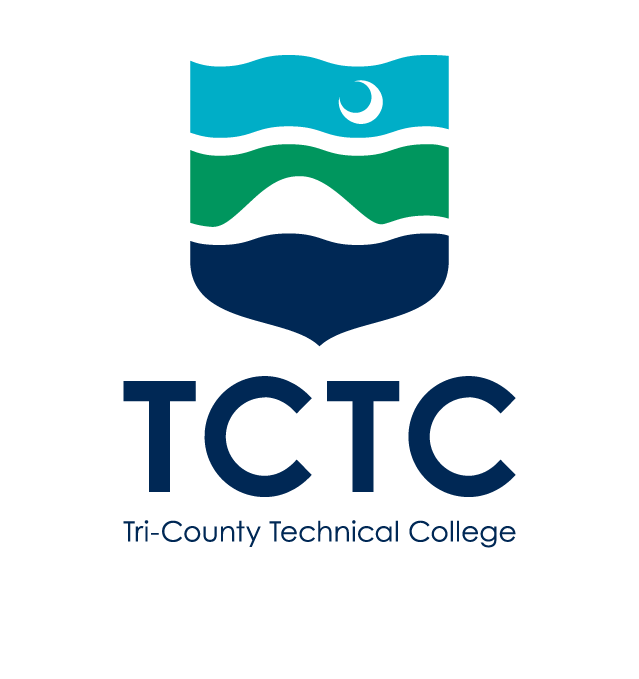
2025 Paralegal scholarship awarded
Kim, Lahey & Killough Law Firm congratulates Madison Gilstrap, the winner of our annual Paralegal Scholarship with Tri-County Technical College Foundation. This merit scholarship is awarded to a student who demonstrates academic excellence, dedication and passion for the legal profession. Ms. Gilstrap has shared that this scholarship will allow her to take her remaining classes in order to graduate this Spring semester.
Tri-County Technical College is a public, two-year community and technical college serving Anderson, Oconee and Pickens counties in South Carolina and is accredited by the Southern Association of Colleges and Schools Commission on Colleges (SACSCOC). The Criminal Justice, Paralegal Emphasis program at TCTC is an associate degree program offered both at the Pendleton Campus and online. The College advances economic development in the tri-county region by preparing a highly skilled workforce.
Kim, Lahey & Killough is committed to supporting education in our community and are proud to invest in the next generation of legal professionals. With offices in Greenville and Charleston, SC and Brevard, NC, the Kim, Lahey & Killough Law Firm is devoted to helping clients establish, enforce, and leverage their intellectual property rights from the Upstate, to the Lowcountry to across the globe. For more information, visit the firm website at kimandlahey.com.
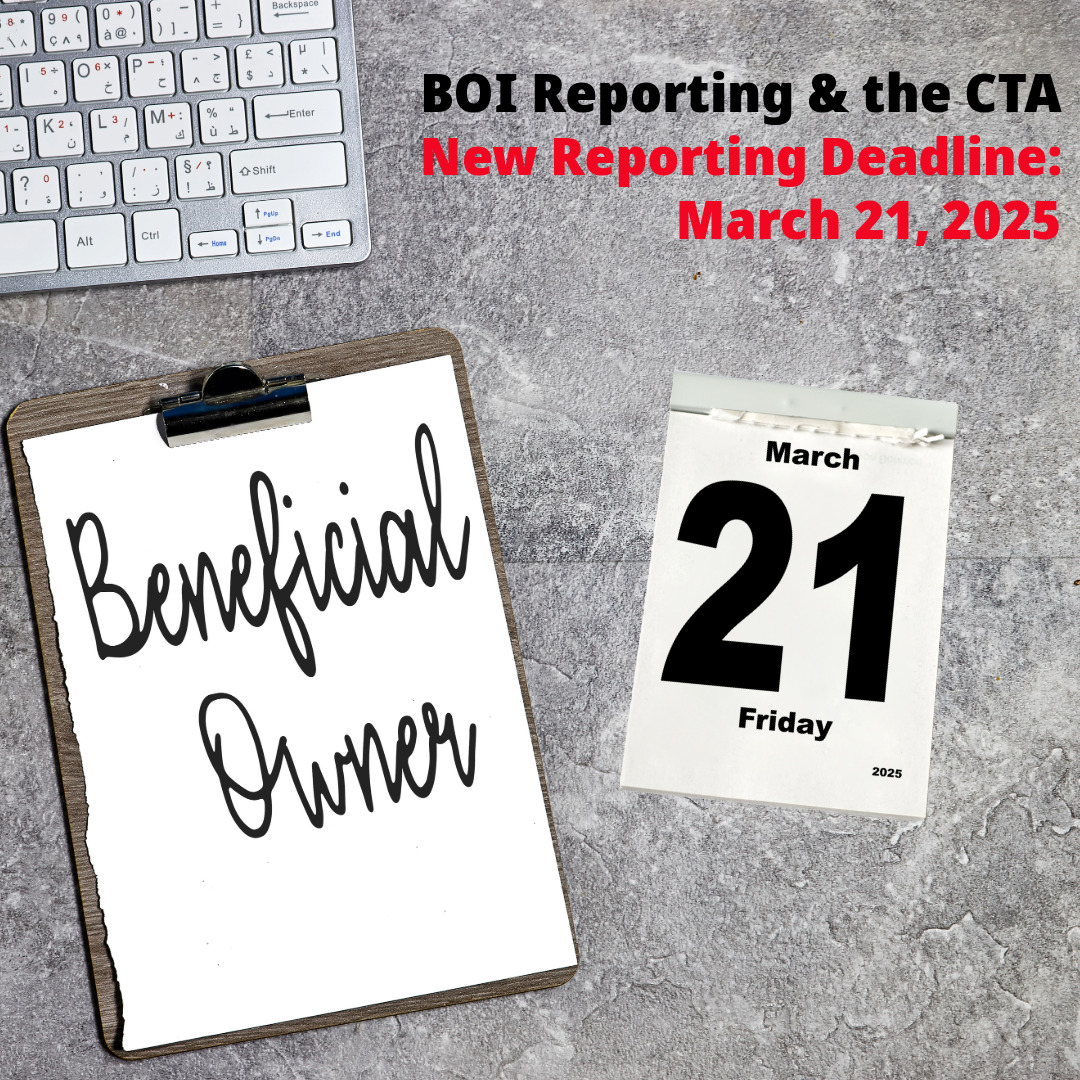
BOIR CTA new reporting deadline
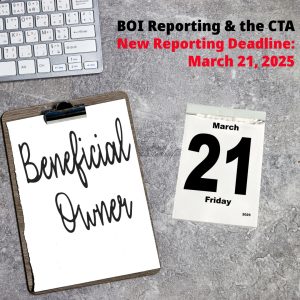 February 28, 2025
February 28, 2025
If you have been tracking the movement of the Beneficial Ownership Information Reporting and Corporate Transparency Act as it makes its way through our Federal Court system you will not be surprised to learn that yet another ruling has been released on this matter today.
How does today’s ruling affect you?
The short answer is that your company(ies) DO need to file a BOIR to be compliant with the CTA unless they qualify under one of the exceptions under the law. Currently, the injunction against the CTA is not in effect until the Court of Appeals issues an opinion.
In the meantime, FinCEN extended the BOIR filing deadline to March 21st. This update indicates that while a new deadline has been issued, fines or penalties will not be imposed nor will enforcement actions be taken against any companies based on a failure to file a BOIR until they publish an interim rule. That new rule is expected to be issued on or before March 21st.
While there’s still some uncertainty surrounding this Act, failure to comply could create significant risk to your business (penalties for non-compliance are steep at $500 per day per beneficial owner and possible jail time.)
Even though you may have heard that you did not need to file a BOIR during one of the “off again” moments, we are advising our clients to comply with the Act. If you would like assistance with filing your BOIR or other business and corporate related matters, please contact your attorney or Kim, Lahey & Killough attorney Emily Bohan or Tony Nolte.
Please note that Kim, Lahey & Killough will not file a BOI report for you, nor arrange to have a BOI report filed for you unless you reach out to us directly to request assistance.
For more information, please visit https://kimandlahey.com/practice-areas/corporate-transparency-act/

Key Business and Legal Trends in 2025
Navigating the Legal Landscape: Key Trends for Businesses in 2025
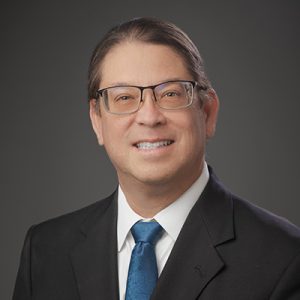 Kim, Lahey & Killough founding attorney Doug Kim joined Mike Switzer on South Carolina Public Radio’s South Carolina Business Review to discuss the new legal landscape for businesses in 2025. Key points include:
Kim, Lahey & Killough founding attorney Doug Kim joined Mike Switzer on South Carolina Public Radio’s South Carolina Business Review to discuss the new legal landscape for businesses in 2025. Key points include:
Disruptive Technology’s Impact
AI is rapidly reshaping business and the legal profession, presenting both opportunities and challenges. Unlike previous technological shifts, AI is accelerating change at an exponential rate, forcing businesses and law firms to adapt faster than before.
Key Implications for Businesses
-
Technology Adoption: Companies must be prepared to leverage new technologies quickly and strategically.
-
Increased M&A Activity: With substantial cash reserves and a pro-business climate, mergers and acquisitions are expected to increase.
-
Due Diligence Preparedness: Doug strongly advises businesses to begin due diligence preparations in anticipation of potential acquisitions.
In addition, the legal profession itself is experiencing significant disruption. AI tools are enhancing efficiency in research, particularly with regard to patent and trademark searches. Kim emphasizes that AI won’t replace lawyers, but lawyers and law firms that adopt AI technologies will likely outperform those that resist change.
In 2025, businesses must stay agile, embrace technology, and quickly manage the risks associated with new technologies and business models.
Listen to the full interview here or read the full transcript, below.

Full Transcript of The new legal landscape for businesses, an interview with Doug Kim on Mike Switzer’s South Carolina Business Review.
Broadcast on South Carolina Public Radio on January 23, 2025
[00:09.710] – Mike Switzer
Hello and welcome to the South Carolina Business Review. This is Mike Switzer.
As this New Year with a new administration in Washington just getting started, many businesses may be looking at the legal landscape and what they can expect to see in 2025. Doug Kim is an attorney in Greenville, South Carolina, where he joins us from now by phone to help us with this topic.
Doug, welcome to the program.
[00:39.990] – Doug Kim
How are you doing? Thanks for having me.
[00:41.620] – Mike Switzer
Great. Let’s just go ahead and kick off the discussion with an overview of what you see happening in the legal world this year.
[00:49.970] – Doug Kim
Well, it’s going to be quite a few fast changes, and I’ll give you my opinion of the analogies of why I think this is going to happen. And that is, Windows came out many years ago, and it made software accessible to the public in general, which was disruptive for society and business. 2007, the iPhone comes out and it creates software in your hand, again, disruptive for the benefit of increased technology – massive changes in business and society. What’s happening now is we have AI, which is even faster, that’s doing a couple of things. This is what’s driving changes in the legal side, I think. Ai has made everybody feel like, Oh, there’s this new technology. Gosh, we’re behind. We need to be stepping up. That’s one piece. Another piece is you’ve got a new administration who, by all accounts, seems to be reducing regulations and is going to be pro-business. Not that other administrations haven’t been, but this particular one seems to be more pro-business. Add on top of that, you’ve got a bunch of pent-up demand: during election years, businesses tend to, I don’t want to say stall, but they tend to not make much major decisions until they see what’s going on.
There’s a lot of money sitting on the guidelines to move projects forward. So, with all that said, you add the technology changes, the environmental changes, the geopolitical changes, and the fact there’s a lot of cash sitting out there, you’re going to watch the legal profession really have a lot of, quote, “pressures on it.” Our clients are going to be pressing us to be able to adopt technology and candidly, probably move faster than the legal profession is used to.
[02:22.290] – Mike Switzer
Okay. It sounds to me like a massive headache year for you.
[02:25.480] – Doug Kim
It could be based on the law firm’s attitude. It’s not uncommon for technology to change the law. For example, in one area of the law, the right to privacy. Well, everybody’s got a phone in their pocket now, and that phone has a camera. What is your expectation of privacy if everybody can video and photograph you now? So the way the law changed was because the technology changes. The law firms are just going to have to say, “All right, I need to understand this.” I need to step up and say, Here the deal is, as well as how these businesses are adopting it and say, “Okay, how do I manage the risk?”, which is a lot of what lawyers do with these new technologies and these new ways of doing business. And how do I keep myself up to speed so I can respond properly and competently to my client’s demands? I think when you say it could be a lot of headaches, it’s going to require lawyers to educate themselves in areas faster than maybe they’re accustomed.
[03:18.490] – Mike Switzer
Maybe giving up some of the bread and butter business that’s been the thing. In any way, you see a lot of consumers and businesses turning to alternative legal service providers like Legal Zoom.
[03:32.980] – Doug Kim
That’s exactly right. There is definitely a place for that. The legal services traditionally required a lawyer and a lawyer thinking to do some of this stuff. With the advent of some of these other businesses being in those areas, particularly with the leveraging of technology, it may not be a lawyer’s job, either 100% or maybe not even at all. I’ll give you a good example. The type of work that I principally do is intellectual property. We used to have to go hire people to do patent searches and trademark searches for us. Over the years, these patent and trademark databases have been developed by government agencies, Google patents, things like that. You can take the current technology with AI and do a patent or trademark search much more efficiently and faster than a human being could have done it years ago. Some of those tools that are out there are going to reduce, I don’t think eliminate…but reduce the need for some of the legal services that typically an attorney would do. Ai is not going to replace lawyers. It’s not going to do that. However, the law firms that adopt AI will probably replace the ones that don’t.
[04:35.080] – Mike Switzer
What is your recommendation for businesses that are listening right now then on what they should be doing to take advantage of these trends?
[04:41.730] – Doug Kim
If I had to say it in one sentence: Start thinking about getting ready for due diligence. You can Google due diligence and see what that takes. I mean, anybody can do that. If I’m right and there’s going to be an increased M&A activity and companies are going to be acquiring technology, not developing it, a company that wants to be a target for an acquisition would serve themselves well getting ready for this process.
[05:05.080] – Mike Switzer
All right, Doug. Great information. Thank you so much for spending time with us today.
[05:09.120] – Doug Kim
Happy to do it. Enjoyed it.
[05:10.870] – Mike Switzer
Doug Kim is an attorney. He joined us by phone from his office in Greenville, South Carolina. Remember, you can hear this show again at our web page, southcarolinapublicradio dot org. You can hear us again wherever you find podcasts with the South Carolina Business Review. This is Mike Switzer.
[05:33.700] – Announcer
The views expressed on the South Carolina Business Review do not necessarily reflect those of South Carolina Public Radio.

CTA requirements on hold once again
CTA requirements on again off again this week – Currently still on hold
 In one week over the holidays, the courts have reversed decisions twice on the subject of the Corporate Transparency Act and corporate Beneficial Ownership Information Reporting (BOIR) filing requirements.
In one week over the holidays, the courts have reversed decisions twice on the subject of the Corporate Transparency Act and corporate Beneficial Ownership Information Reporting (BOIR) filing requirements.
On December 23rd, the requirements were put back in place by the Federal Court of Appeals for the 5th Circuit with a new filing deadline of January 13th.
On December 26th, the Court changed its mind and vacated its stay pending oral arguments, pressing the pause button once again.
However, the Court might switch again after hearing oral arguments. Due to the uncertainty surrounding this filing requirement, we recommend that you gather your Beneficial Ownership information and be prepared in the event you are required to file quickly to meet a deadline.
Should you wish to file your BOIR now and would like our assistance with that filing or other business and corporate related matters, please contact your attorney or Kim, Lahey & Killough attorney Emily Bohan or Tony Nolte.
Please note that Kim, Lahey & Killough will not file a BOI report for you or arrange to have a BOI report filed for you unless you reach out to us directly to request assistance.
For more information, please visit https://kimandlahey.com/practice-areas/corporate-transparency-act/

CTA and Beneficial Ownership Reporting While Under Preliminary Injunction

Earlier this month we reported on the recent nationwide preliminary injunction against the Corporate Transparency Act and enforcement of the Beneficial Ownership Interest Report (BOIR) requirement. Below we provide you with additional guidance.
While the Texas District Court’s nationwide preliminary injunction provides a reprieve from the January 1, 2025 filing deadline, it may not mean you are off the hook entirely. In reality, this development in the law creates more questions than answers.
What is a business owner to do? Consider these three options:
- Do nothing. Ignore the whole thing. WE DO NOT RECOMMEND!
- File your BOIR now and move on to focus on operating your business.
- Wait and see what happens next to find out for sure what, and by when, you could be required to file your BOIR. Keep in mind that there could be a very short time period in which to come into compliance with this federal law.
We anticipate there will be additional court proceedings. Most likely, the government will appeal this injunction and move for a stay of it. Here is what could happen next:
- The stay is granted, the preliminary injunction is lifted and reporting requirements immediately return. There may or may not be a grace period.
- The stay is denied and the preliminary injunction continues, again though, temporarily until the issue can be fully and finally resolved in the courts.
- The scope of the preliminary injunction is narrowed, perhaps making it apply to a smaller group of people, such as only the named plaintiffs.
In short, while you do have a reprieve from the January 1, 2025 filing deadline, you also have uncertainty about what may or may not be required next. Taking the above into consideration may help you determine the best path forward for you and your business.
Should you wish to file your BOIR now and would like our assistance with that filing or other business and corporate related matters, please contact your attorney or Kim, Lahey & Killough attorney Emily Bohan or Tony Nolte.
Please note that Kim, Lahey & Killough will not file a BOI report for you or arrange to have a BOI report filed for you unless you reach out to us directly to request assistance.
For more information, please visit https://kimandlahey.com/practice-areas/corporate-transparency-act/
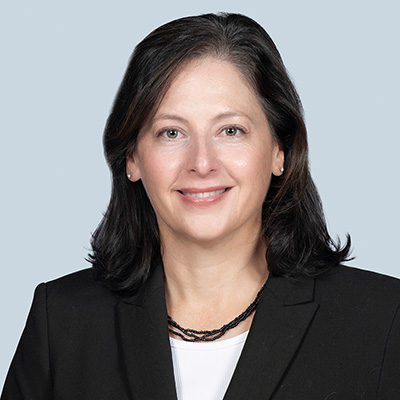
Franchisees as Third-Party Beneficiaries
Franchise attorney Emily Bohan chosen for publication in the prestigious ABA Forum on Franchise Law Journal—explores Third-Party Beneficiary Rights in Franchise Law
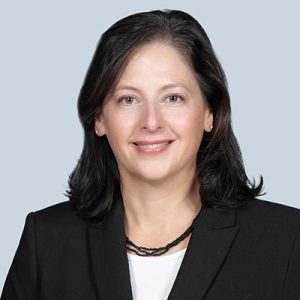 Kim, Lahey & Killough attorney Emily Bohan and Hannah M. Leiendecker of the Faegre Drinker firm in Minneapolis, MN published an article in the latest edition of Franchise Law Journal with the American Bar Association. The article, “Franchisees as Third-Party Beneficiaries to Franchisor’s Agreements with Other Franchisees or Vendors” sheds light on the complex world of third-party beneficiary rights in franchising and examines how individuals or entities not directly party to a contract may still enforce its terms under certain circumstances. This article was published immediately prior to the annual meeting of the ABA Forum on Franchising, at which Emily was in attendance last week.
Kim, Lahey & Killough attorney Emily Bohan and Hannah M. Leiendecker of the Faegre Drinker firm in Minneapolis, MN published an article in the latest edition of Franchise Law Journal with the American Bar Association. The article, “Franchisees as Third-Party Beneficiaries to Franchisor’s Agreements with Other Franchisees or Vendors” sheds light on the complex world of third-party beneficiary rights in franchising and examines how individuals or entities not directly party to a contract may still enforce its terms under certain circumstances. This article was published immediately prior to the annual meeting of the ABA Forum on Franchising, at which Emily was in attendance last week.
Executive summary:
A significant impact on Dispute Resolution: Third-party beneficiary rights can play a crucial role in franchise disputes, often determining whether a case has any remedy at all. This underscores the importance of understanding these rights for all parties involved in franchise relationships.
Clear Intent: Courts typically require clear evidence that the contracting parties intended to benefit the third party. This high standard emphasizes the need for precise language in franchise-related contracts.
Franchisee Enforcement of Vendor Agreements: In some cases, franchisees have successfully enforced agreements between their franchisor and vendors as third-party beneficiaries. This highlights a potential avenue for franchisees to protect their interests.
Employee “Poaching” Restrictions: Some franchisors have utilized third-party beneficiary rights to limit employee recruitment between franchisees. However, Bohan and Leiendecker note that this practice faces increasing legal scrutiny and potential antitrust challenges.
Rare Vendor Claims: While uncommon, there are instances where third-party vendors have successfully claimed benefits under franchise agreements. These cases often hinge on exceptionally close relationships between the vendor and franchisor.
Highly Fact-Specific Nature: Bohan and Leiendecker emphasize that third-party beneficiary cases in franchise law are typically unpredictable and heavily dependent on specific circumstances. This unpredictability underscores the need for careful contract drafting and legal guidance.
The full article provides a thorough examination of relevant case law and offers practical insights for franchise industry professionals. It serves as a valuable resource for franchisors, franchisees, and their legal counsel in navigating the complex web of contractual relationships inherent in franchise operations.
Bohan and Leiendecker emphasize that these cases are highly fact-specific and often unpredictable. Both recommend that franchisors and franchisees carefully consider potential third-party beneficiaries when drafting contracts. They suggest a proactive approach and recommend that parties mitigate uncertainty and reduce ambiguity by explicitly stating their intentions regarding third-party benefits within their contracts.
The full article, “Franchisees as Third-Party Beneficiaries to Franchisor’s Agreements with Other Franchisees or Vendors,” is available in the current issue of the Franchise Law Journal.
Copyright 2024. Published in The Franchise Law Journal, Vol. 43, No. 3, Fall 2024, by the American Bar Association. Reproduced with permission. All rights reserved. This information or any portion thereof may not be copied or disseminated in any form or by any means or stored in an electronic database or retrieval system without the express written consent of the American Bar Association or the copyright holder.
Emily Bohan is an attorney in the Greenville, S.C. office of Kim Lahey & Killough. Hannah M. Leiendecker is an attorney at Faegre Drinker, practicing in the Minneapolis office.
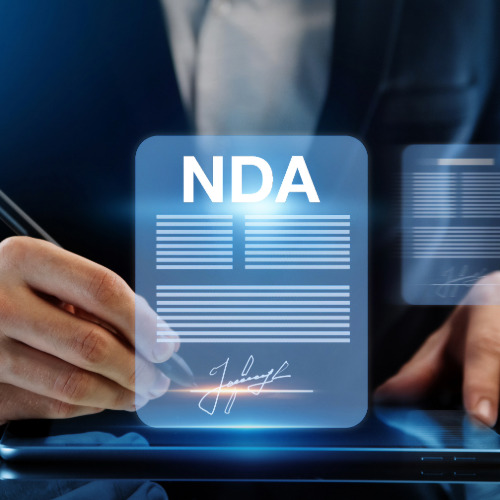
FTC Non-Compete Ban Updates
FTC Non-Compete Ban: Current Status and Implications for Businesses
Presented September, 2024 by Kim, Lahey & Killough attorney Casey Martens
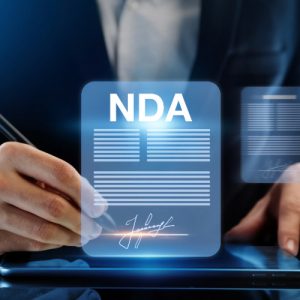 The Federal Trade Commission’s (FTC) recent attempt to ban most non-compete clauses in employer-employee contracts has encountered significant legal challenges, creating uncertainty in the business landscape.
The Federal Trade Commission’s (FTC) recent attempt to ban most non-compete clauses in employer-employee contracts has encountered significant legal challenges, creating uncertainty in the business landscape.
On April 23, 2024, the FTC finalized a rule banning most non-compete clauses, originally set to take effect on September 4, 2024. However, legal challenges have substantially altered this timeline.
In July 2024, a federal court in Pennsylvania upheld the FTC’s authority to issue the ban. Conversely, on August 20, 2024, a Texas court granted a nationwide injunction against the rule’s enforcement, ruling that the FTC had exceeded its statutory authority and that the rule was arbitrary and capricious.
As a result of the Texas decision, the FTC is currently unable to enforce the rule. This provides a temporary reprieve for employers, suspending the need to comply with the rule’s requirements. However, businesses should remain vigilant, as the legal landscape continues to evolve.
While the FTC may lose this particular battle, the war on non-competes is far from over – the debate over non-compete agreements persists. State legislatures continue to introduce laws limiting the scope of non-competes, creating a complex regulatory environment, particularly for businesses with multi-state operations.
Given the uncertain future of non-compete agreements, businesses should consider alternative methods to protect their interests, such as:
- Non-disclosure agreements (NDAs) to safeguard confidential information and trade secrets
- Non-solicitation agreements to prevent former employees from poaching customers or staff
- Ownership and assignment of inventions (OAI) agreements for intellectual property protection
- Robust trade secret policies and internal controls
- Other intellectual property strategies involving copyrights, patents, and trademarks
When implementing these alternatives, it is crucial to ensure they are narrowly drawn and tailored to protect legitimate business interests without overreaching.
As the legal battle over non-compete agreements continues, businesses are advised to stay informed about the latest developments and be prepared to adapt their practices accordingly. Consulting with legal counsel to review and update employment agreements in light of these changes is highly recommended.
 Casey Martens is an attorney in the firm’s Brevard, NC office. Licensed in North Carolina, South Carolina and Georgia, Casey represents employers and workers in employment matters, as well as business and intellectual property disputes.
Casey Martens is an attorney in the firm’s Brevard, NC office. Licensed in North Carolina, South Carolina and Georgia, Casey represents employers and workers in employment matters, as well as business and intellectual property disputes.
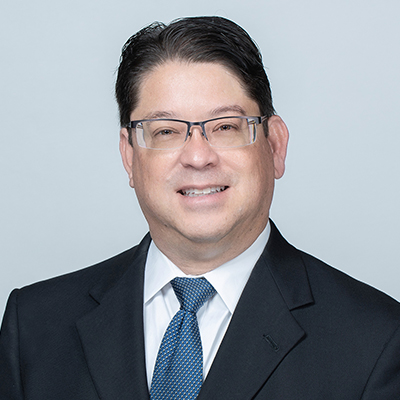
Five Kim Lahey Killough attorneys named 2025 Best Lawyers
Five Kim Lahey Killough attorneys named in Best Lawyers for work in intellectual property, corporate and employment law
Kim, Lahey & Killough Law Firm is honored to announce that five of the firm attorneys are named in The Best Lawyers in America® 2025 edition:
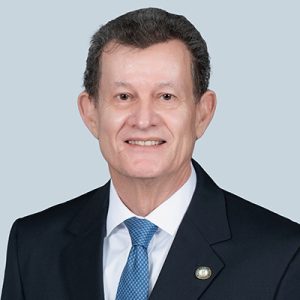 Charleston patent attorney B. C. Killough is recognized for his work in:
Charleston patent attorney B. C. Killough is recognized for his work in:
- Business Organizations (including LLCs and Partnerships)
- Corporate Law
- Litigation – Intellectual Property
- Patent Law
- Trademark Law
Previously, Killough was honored as the Corporate Law Lawyer of the Year for the Charleston metro in 2015.
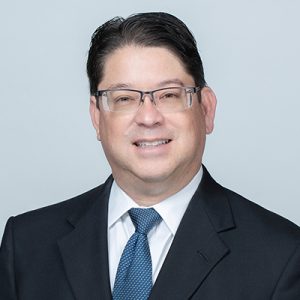 In the Greenville, SC metro market, four Kim, Lahey & Killough attorneys are recognized, including firm founder Douglas W. Kim, who is honored for his work in the areas of:
In the Greenville, SC metro market, four Kim, Lahey & Killough attorneys are recognized, including firm founder Douglas W. Kim, who is honored for his work in the areas of:
- Litigation – Intellectual Property
- Litigation – Patent
- Patent Law
- Trade Secrets Law
- Trademark Law
Kim has previously been recognized as a Lawyer of the Year in Greenville, SC, in two of these areas: as Trademark Lawyer of the Year in 2022 and the Patent Lawyer of the Year in 2019.
Greenville intellectual property attorney Seann Lahey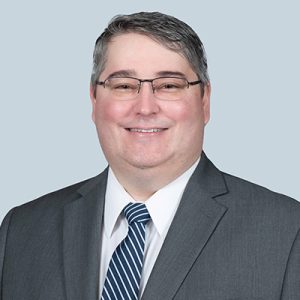 is recognized for his work in:
is recognized for his work in:
- Trademark Law
Additionally, Seann has extensive experience dealing with international and U.S. patent prosecution. His practice also regularly includes matters on trademarks, copyrights, trade secrets, licensing of intellectual property rights, and rendering legal opinions on validity, infringement and enforceability of intellectual property rights, as well as litigation involving intellectual property rights.
IP attorney Hunter S. Freeman is commended for his work in:
is commended for his work in:
- Commercial Litigation
- Copyright Law
- Litigation – Intellectual Property
- Trademark Law
As an Intellectual Property attorney, experienced litigator and certified mediator, Hunter Freeman’s 20+ years of experience and insight provide novel ways for clients to create value through the protection, prosecution and enforcement of their IP.
Attorney Casey Martens practices employment and business law in both the Greenville SC and Brevard NC offices of Kim, Lahey & Killough. Licensed in South Carolina, North Carolina and Georgia, her law practice focuses in the areas of business disputes and litigation, state and federal employment law, drafting and enforcement of restrictive covenants, and business disputes involving tortious interference with contract. Casey is recognized as a 2025 Best Lawyers One to Watch in America in the areas of:
- Employee Benefits (ERISA) Law
- Labor and Employment Law – Employee
- Labor and Employment Law – Management
- Litigation – Labor and Employment
Since 1983, The Best Lawyers in America has compiled and reviewed peer evaluations from across the United States to identify an annual list of honorees. The Best Lawyers in America recognizes only the top 5.3% of lawyers in the nation across 150 practice areas.
With offices in Greenville and Charleston, SC and Brevard, NC, the Kim, Lahey & Killough Law Firm is devoted to helping clients establish, enforce, and leverage their intellectual property rights from the Upstate, to the Lowcountry to across the globe.
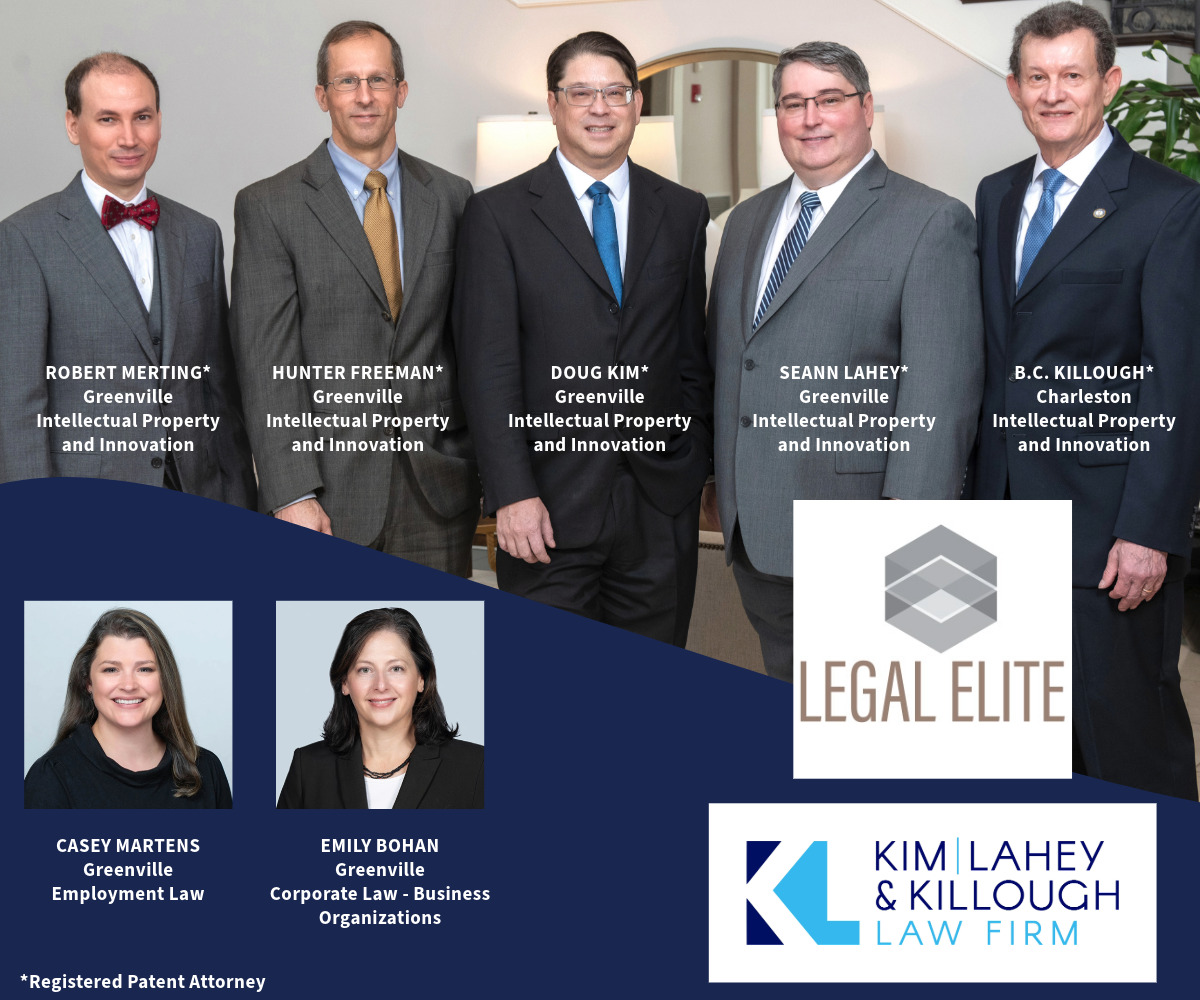
Seven attorneys named 2024 Legal Elite
Seven Kim, Lahey & Killough attorneys listed as 2024 Legal Elite by Charleston Business and Greenville Business Magazines
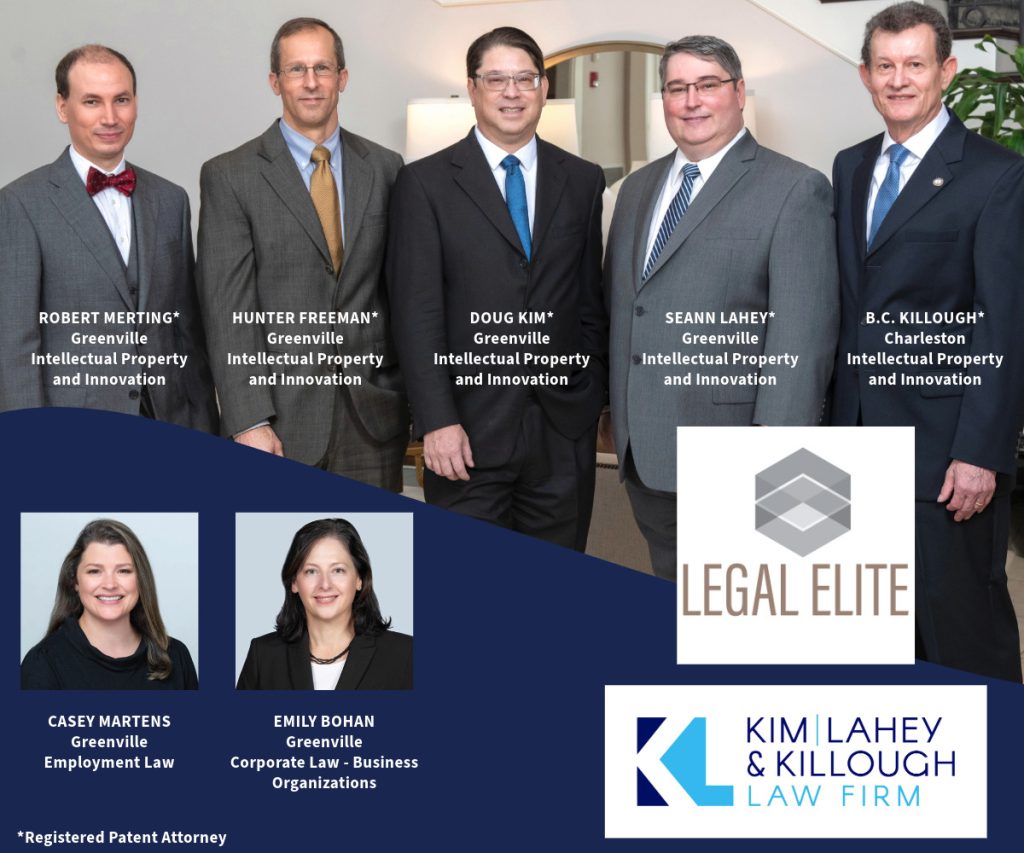
Kim, Lahey & Killough is pleased to announce that seven attorneys have been named in the 2024 Legal Elite lists. Notably, all five of the firm’s registered patent attorneys were recognized for their work in the areas of intellectual property and innovation, a core focus of the law firm.
Greenville Business Magazine and Charleston Business Magazine recognized Doug Kim, Seann Lahey, Hunter Freeman, Robert Merting and B.C. Killough for their contributions to Intellectual Property and Innovation. “This recognition from our peers is a testament to the depth and breadth of our IP practice, as well as our firm’s commitment to excellence. We are honored to have our entire patent team acknowledged, alongside our talented colleagues in employment and corporate law,” commented firm founder, Doug Kim. Additionally, Casey Martens and Emily Bohan were honored for their work in Employment Law and Corporate Law – Business Organization matters.
Doug Kim is no stranger to legal awards and accolades. In addition to his Legal Elite IP and Innovation recognition, Kim has been listed in South Carolina Super Lawyers annually since 2017, and he has been recognized in the Greenville, SC Best Lawyers® list, named the Best Lawyers® Trademark Lawyer of The Year, the Best Lawyers® Patent Lawyer of The Year, and an IP Star by Managing Intellectual Property magazine.
Firm co-founder Seann Lahey is noted for his IP and Innovation work not only by Legal Elite of the Upstate but is also listed in South Carolina Super Lawyers as well as Best Lawyers in America for his work in intellectual property law. Seann has extensive experience dealing with international and U.S. patent prosecution, trademarks, copyrights, trade secrets, licensing of intellectual property rights, and rendering legal opinions on validity, infringement and enforceability of intellectual property rights, as well as IP litigation.
Hunter Freeman has over 20 years of experience as a litigator and certified mediator and works to provide novel ways for clients to create value through the protection, prosecution and enforcement of their IP including trademarks, service marks and copyrights. As the 2024 Chairman of the InnoVision Awards, Hunter works hard to provide opportunities for start ups and businesses in the state to advance technological innovations. In addition to Legal Elite, Hunter has been recognized for his legal efforts by both Super Lawyers and The Best Lawyers in America ® for his work in intellectual property and business litigation.
Greenville patent attorney Robert Merting joins his colleagues as a named Legal Elite for IP and Innovation this year. Robert’s general business practice serves a variety of clients and industries, including builders, manufacturers, inventors, professionals and governmental organizations. He counsels businesses and individuals on IP contracts, corporate IP agreements, trademarks, non-disclosure agreements, and patents.
Charleston patent attorney B.C. Killough has counseled businesses and professionals for over 30 years. Regularly recognized for his legal efforts on behalf of his clients, Killough’s Legal Elite for IP and Innovation award is joined by recognition as a Senior Fellow by the Litigation Counsel of America, as an AV preeminent rated attorney with Martindale-Hubbell, as a Best Lawyers Corporate Lawyer of the Year for the Charleston market, and Thomson Reuters has recognized Killough as a Stand-Out Lawyer – a recognition bestowed by in-house counsel peers.
Casey Martens is recognized as a Legal Elite for her work in employment law for both plaintiffs and defendants. Casey’s legal practice includes business litigation, intellectual property and employment counsel to small and medium-sized businesses, as well as to employees in employment disputes. Licensed to practice in South Carolina, North Carolina and Georgia, Casey heads up the firm’s Brevard, NC office.
Business attorney Emily Bohan is commended as a Legal Elite for her efforts with Corporate Law – Business Organization matters. Emily focuses her legal practice on franchise law, business formation and organizations (Including LLC’s and Partnerships), and labor and employment matters. And when businesses are in a dispute, Emily serves as a certified mediator, to assist parties to come to a resolution outside of the courtroom. Greenville Business Magazine recognized Emily as a 2024 SC Women in Business.
The Legal Elite are selected annually through peer nominations from attorneys throughout the state of South Carolina in 50 legal practice areas.
About Kim, Lahey & Killough
With offices in Greenville and Charleston, SC and Brevard, NC, the Kim, Lahey & Killough Law Firm is devoted to helping clients establish, enforce, and leverage their intellectual property rights from the Upstate, to the Lowcountry to across the globe.


